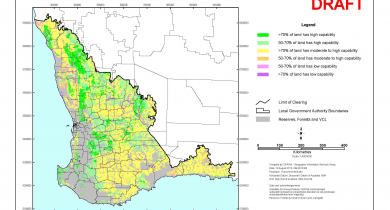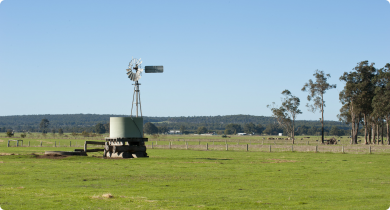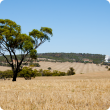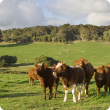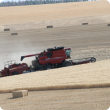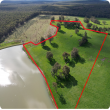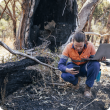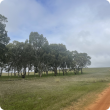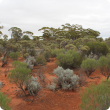Land use
Western Australia is the largest Australian State, spanning 2 400 kilometres from north to south, and experiencing a variety of climatic conditions, soil and land properties, and water availability. Accordingly, the state is suited to a variety of agricultural industries ranging from open range grazing and broadacre cereal cropping through to irrigated pastures and horticulture, orchards and vineyards.
The Department of Agriculture and Food, Western Australia provides the advice, support and tools needed to ensure the State’s land has the capability to sustain agricultural use, without degrading the soil and water resources on which it relies, and to ensure our most valuable agricultural land is protected from non-agricultural development.
Filter by search
Filter by topic
- (-) Remove Carbon Farming - related pages filter Carbon Farming - related pages
- Climate change (2) Apply Climate change filter
- Climate & weather (2) Apply Climate & weather filter
- New horticulture crops (1) Apply New horticulture crops filter
- Soils (1) Apply Soils filter
- Measuring and assessing soils (1) Apply Measuring and assessing soils filter
- Rangelands (1) Apply Rangelands filter
- Grains (1) Apply Grains filter
- Canola (1) Apply Canola filter
- Crops (1) Apply Crops filter
- Horticulture (1) Apply Horticulture filter
- Livestock & animals (1) Apply Livestock & animals filter

